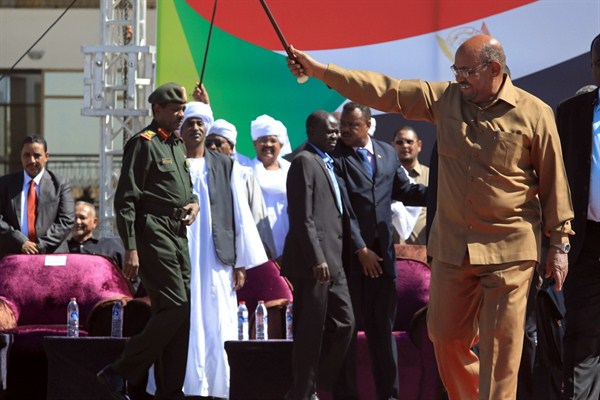Omar al-Bashir’s long rule in Sudan has been defined by a criminal and abject failure to govern. But he has also shown unmistakable staying power as the leader of a vast, hard-to-manage country. That is now being tested to its limits as weeks of anti-government demonstrations show no sign of dissipating, even in the face of killings and mass arrests carried out by his security forces.
Since seizing power in 1989, Sudan’s president has somehow navigated his way through a permanent state of national crisis, albeit a crisis largely created and sustained by his own actions. Bashir survived a crippling civil war that resulted in the loss of one-third of Sudan’s territory and three-quarters of its oil revenue when South Sudan achieved independence in 2011. He has remained immovable in the face of an indictment by the International Criminal Court on charges of committing genocide, war crimes and crimes against humanity related to his conduct of the conflict in Darfur. He snuffed out coup plotters in 2012 and violently put down street protests in 2013. And he turned more than two decades of international isolation and U.S. economic sanctions to his political advantage, deflecting blame for his own failures onto his foreign enemies.
For nearly three decades, Bashir has used every trick in the despot’s handbook to maintain his grip on power. He has mastered the strategy of divide and rule, aided by political adversaries who spend as much time bickering with each other as opposing the government. He has deployed a vast patronage network to buy off current and potential opponents, funded by natural resource revenues and corrupt contracts through government-controlled companies. And he has been quick to use lethal, indiscriminate force to pursue armed groups in Sudan’s neglected periphery and peaceful demonstrators on the streets of Khartoum.

